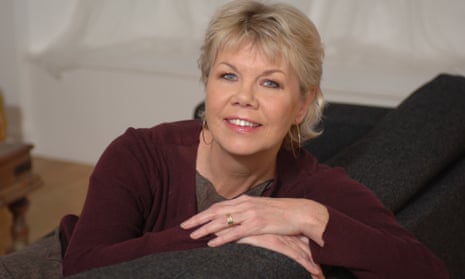Daily Mail advice columnist Sally Brampton killed herself after health professionals “missed opportunities” to help her, an inquest has heard.
The journalist, who had spoken publicly about her long-running battle with depression, died on 10 May after apparently walking into the sea near her home in St Leonards-on-Sea, East Sussex.
Brampton, 60, wrote a memoir about depression, titled Shoot the Damn Dog, and was the launch editor of British Elle magazine at the age of 30.
At Brampton’s inquest, Hastings coroner’s court heard the writer was “in crisis” in March 2016, had been in contact with a private psychiatrist and a GP, and had been referred to local mental health services for help.
“That help did not come,” assistant coroner James Healy-Pratt said, adding that she re-contacted a GP in April.
“She had not been contacted by the mental health services as agreed,” the coroner told the court.
A referral was made again and it was agreed she was “out of crisis” at this stage – but her recent full clinical details, including a concerned letter from her private psychiatrist, was not provided to the relevant services.
The letter, dated 19 March, was sent to the GP and stated that Brampton had “strong suicidal thoughts”.
The psychiatrist said Brampton was having feelings of hopelessness and helplessness, adding that she had spent most of the last week in bed and had hardly left the house.
The letter said Brampton had disengaged from local services and had “painted a very jaundiced view of them”.
Healy-Pratt said: “I certainly find that there was a missed opportunity to assist Sally in March 2016.”
He added that a second missed opportunity came when more information should have been provided about Brampton’s condition in the re-referral.
“However, we don’t know that those missed opportunities would have changed Sally’s outcome and that is an important factor,” the coroner said.
He added that he was satisfied beyond reasonable doubt that Brampton wanted to walk into the sea and he recorded a verdict of suicide.
The inquest heard from Brampton’s friend Emma Ridout, who said of her: “She didn’t have any confidence in the NHS helping her.”
The coroner described Brampton as a “bright star” and began his conclusion with the writer’s words: “We don’t kill ourselves. We are simply defeated by the long, hard struggle to stay alive.”
Christine Henham, a general manager at Hastings and Rother mental health services, said lessons had been learned and changes had been made since Brampton’s death.
She said they no longer sent or received faxes after Brampton’s GP said he faxed the psychiatrist’s letter to them and it had not been received. Henham added that staff were now encouraged to gather more information about patients.
